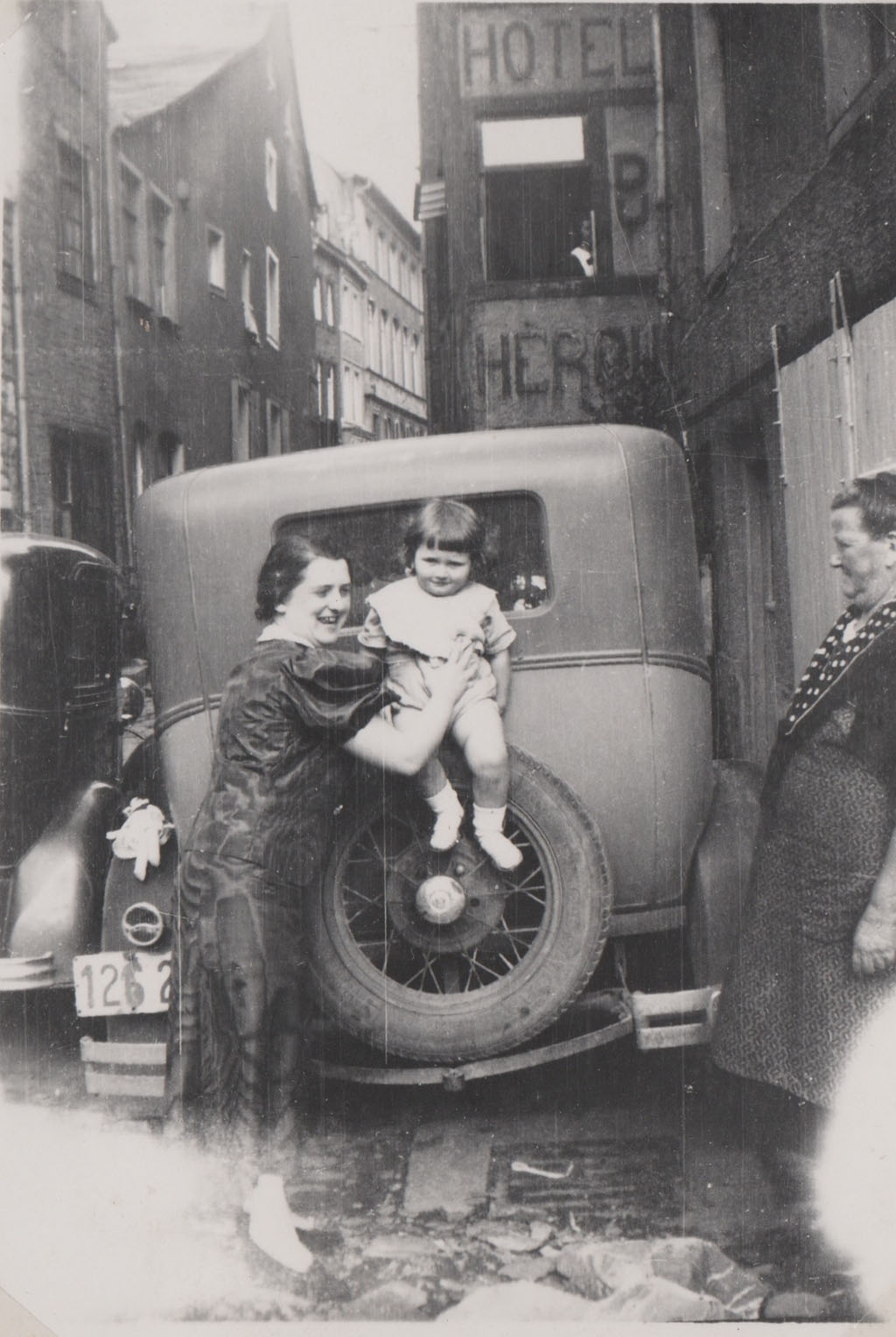Like the other children in La Roche, Andrée Collin was eagerly looking forward to Christmas of 1944. In September the Americans had liberated the Belgian town from Nazi occupation. There were plans for a banquet and a ball on 25 December. Hitler’s counteroffensive in the Ardennes brought a nightmare instead.
Andrée Collin was only nine in 1944. But she was old enough to know that war meant fear. Peace and the presence of the American liberators transformed her life. She felt safe again in her home at the foot of La Roche’s medieval castle. And her father and mother – a businessman and a hatmaker – were busy making plans for a bright future.
Nothing had been more horrifying to Andrée than to witness the surprise return of German tanks just days before Christmas. But things were getting worse soon. To stop the Germans, the Allies decided that La Roche’s roads had to be destroyed. The day after Christmas, American bombers pulverized the bridge over the Ourthe and nearby buildings. On 27 December the aircrafts returned, determined to wipe out the rest of Andrée’s town. In the panic that followed, the girl became separated from her mother.
When the bombs stopped exploding, Andrée and her father climbed out of their shelter. Fires were raging across town. Dust made the sky invisible. Her father became angry when Andrée slipped away to rescue her doll from the ruins. “And mom?” Andrée insisted as she clutched her doll. “Where is mom?” “She’ll be fine,” her father said soothingly. “She has her fur coat on and some food in a bag.”
But as the girl and her father tried to get their bearings, news reached them that Andrée’s mother lay dead in the rubble. For the Collin family, Christmas would be a time of darkness forever.


